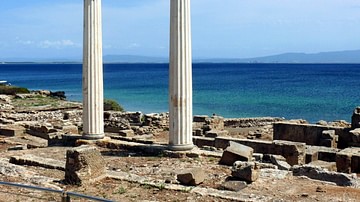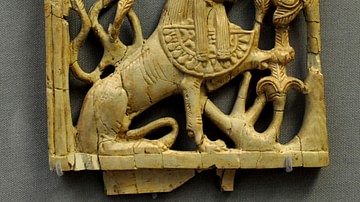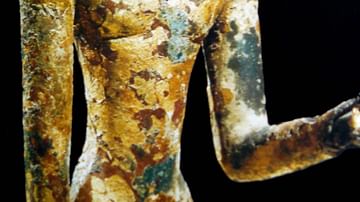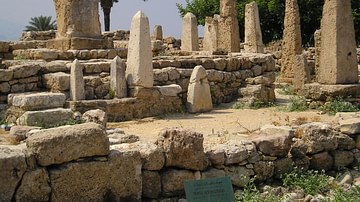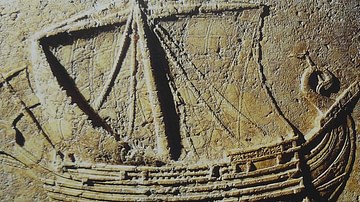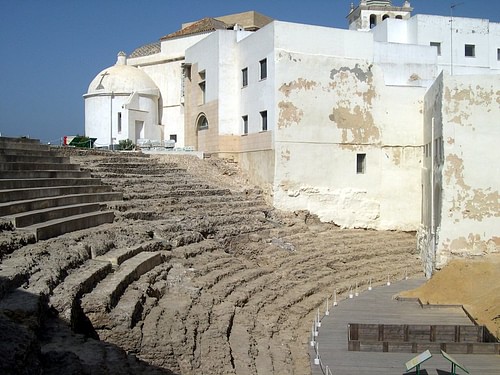
Gades (modern-day Cadiz, Spain) was an ancient city located on the island of Erytheia, northwest of Gibraltar at the tip of the Iberian Peninsula and is believed to be one of the most ancient cities still standing in Western Europe. Although some sources place its founding by the Phoenicians of Tyre in the eighth century BCE, other historical records claim that the city was established earlier, around 1100 BCE, as a seasonal trading post, providing the Phoenicians with access to the vast mineral wealth of the area. While historians accept the Phoenician settlement as fact, the ancient Greeks and Romans consider another possibility, believing the site to have been founded as a result of one of the twelve labours of the mythological son of Zeus, Hercules.
According to the legend, based upon the writings of the Greek lyric poet Pindar, Hercules murdered his wife and children during an insane rage brought about by the jealous goddess Hera. He appealed to the god Apollo and was made to atone for his misdeeds by performing twelve nearly impossible labours. Among these labours (the tenth) was one calling for him to capture the cattle of the three-headed monster Geryon and take them to Eurystheus, the king of Mycenae. This labour would take Hercules to the ends of the known world where he would eventually erect what became known as the Pillars of Hercules, the Gates of Cadiz or Gades. During the capture of the cattle, or so the legend says, Hercules built a huge mountain and when he split it apart he brought about the separation of the continents of Europe and Africa, thereby connecting the Mediterranean Sea to the Atlantic Ocean via the Strait of Gibraltar.
In actuality the city became a battleground for control of the western Mediterranean Sea. With the decline of the Phoenicians in the east and the rise of Carthage in the west, the status of Gadir (as it was originally called) shifted, and in 500 BCE, the city was captured by Carthage and made part of their growing empire. During the Second Punic War between Carthage and Rome (218-201 BCE), the Carthaginians understood the benefits of the city's location and made it their first Spanish base. Carthage plundered the surrounding area for its resources in their futile attempt to repel Rome. As with its sister city (Carthago Nova) to the east, the city was relieved when, in 206 BCE, it was captured by Roman legions under the leadership of Scipio Africanus.
After the end of the war and the removal of the Carthaginian threat, the newly acquired city prospered under Roman rule. Its location was both beneficial economically (with its production of fish sauce) as well as strategically in its role as a naval base, as the city had a long history of shipbuilding. Since the city had supported Julius Caesar against his nemesis Pompey, he granted the city municipal status in 49 BCE and changed its name to Gades, (this was later reaffirmed by Augustus); the city's new colony became Urba Iulia Gaditana.
However, as the Roman Empire declined, so did the importance and commercial value of the city and little else is mentioned in later Roman Empire records except for the fact that Emperor Hadrian's mother was born there. With the eventual fall of the Empire, the city was overrun and much of it was destroyed by the Visigoths in 410 CE. Although it was later conquered by the Byzantine Emperor Justinian in 550 CE in his attempt to reunite the Old Roman Empire, his successors failed to maintain influence and the Visigoths retook the city in 572 CE. They, too, were unable to keep control and from 711 to 1262 CE the city came under the jurisdiction of the Moors.



